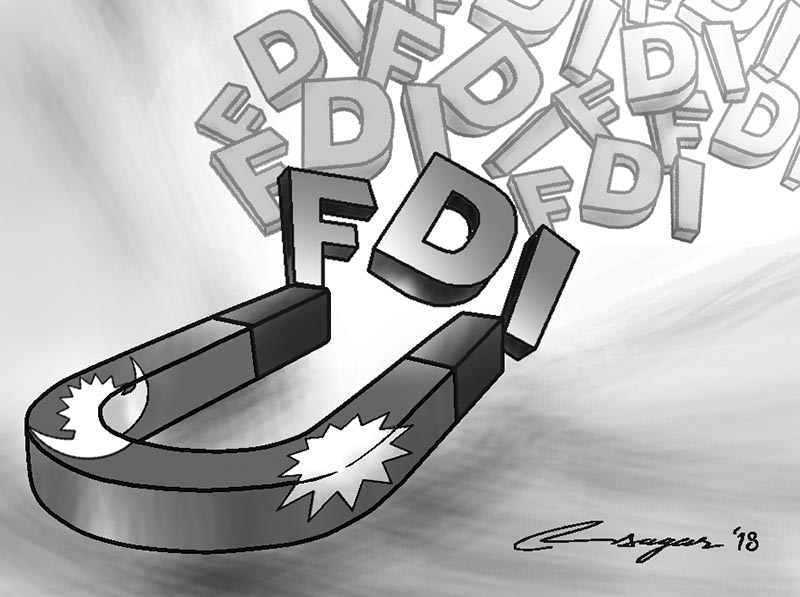Govt brings hedge fund rules to attract FDI
Kathmandu, February 7
The government has introduced the Hedge Fund Regulations, 2075, in order to attract foreign direct investment in hydropower sector.
The Hedge Fund Regulations aim to bring in FDI in convertible currency. The regulations were issued by the Council of Ministers meeting on February 4, according to Minister for Communications and Information Technology Gokul Prasad Baskota.
Speaking at a regular press meet held today to share the cabinet decisions, Baskota said that the government has also granted endorsement for the use of forest area for construction of the 220 kV Chilime-Trishuli transmission line. Similar permission was granted to Mahakali irrigation project, 14.3-megawatt Upper Mailung hydel project, 10MW Kamarigad hydel project, Tamghar Gorusinghe 132 kV substation and to BS Cement Industries to extract limestone.
The cabinet meeting also approved the National Strategy for Data Development; Herbs Development Grant Procedures, 2075; National Forest Policy, 2075; NGO Federation Nepal Statute, 2074; and the Procedures to Provide Forest Land for Resettlement and Relocation of the Earthquake Survivors, 2075.
According to Minister Baskota, the government has approved the Private House Reconstruction Grant Distribution (second amendment) Procedures, 2075, the Madan Bhandari Science and Technology University Infrastructure Development Committee (formation) Order, 2075 and the formation order relating to survey of land in the name of the Korala Customs Office in Mustang district, 2075. The government has also consented to table the bill designed to provide for federal financial procedures and financial accountability in the Federal Parliament.
Meanwhile, the government has appointed Madhusudan Adhikari as the executive director of Alternative Energy Promotion Centre.
Likewise, Jiulal Chaudhary has been appointed chairperson of the Board of Directors of Nepal Water Supply Corporation, while Sangita Bhattarai Regmi and Ram Bahadur Thapa have been appointed as members.
Likewise, the meeting also decided to provide 75 per cent of compensation amount to those people who had all their land occupied by the East-West railway, and 66 per cent to those whose land was partially occupied.






